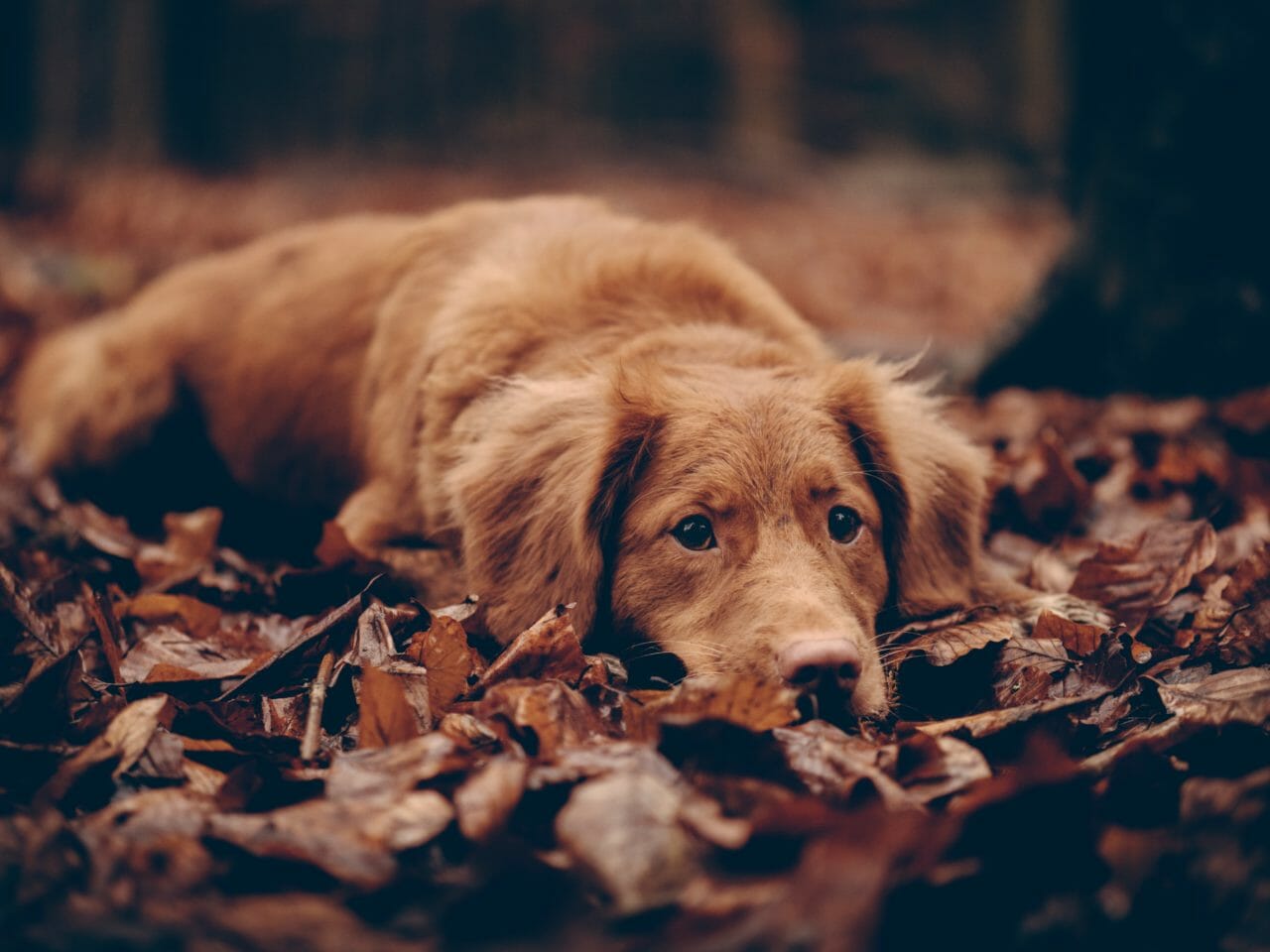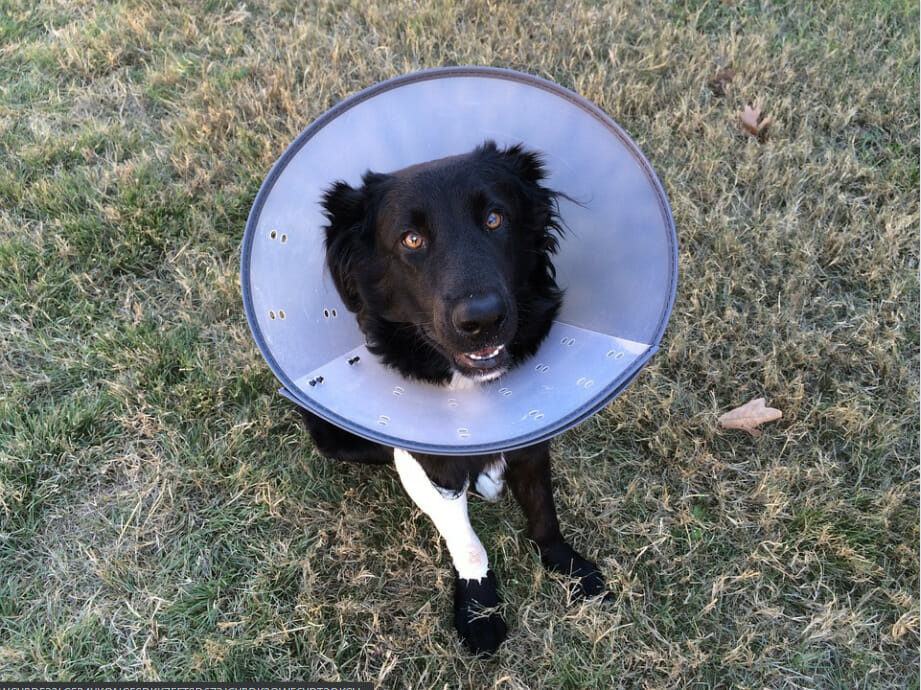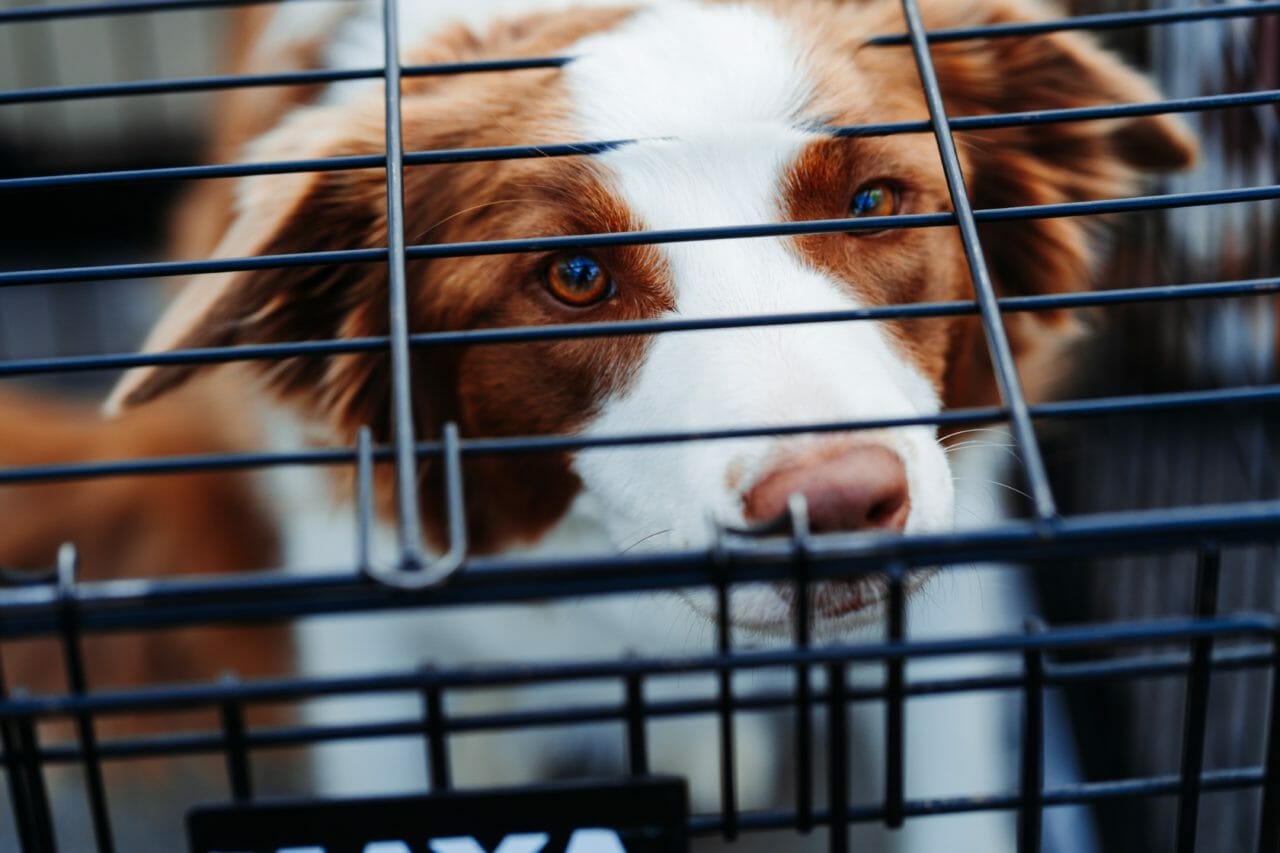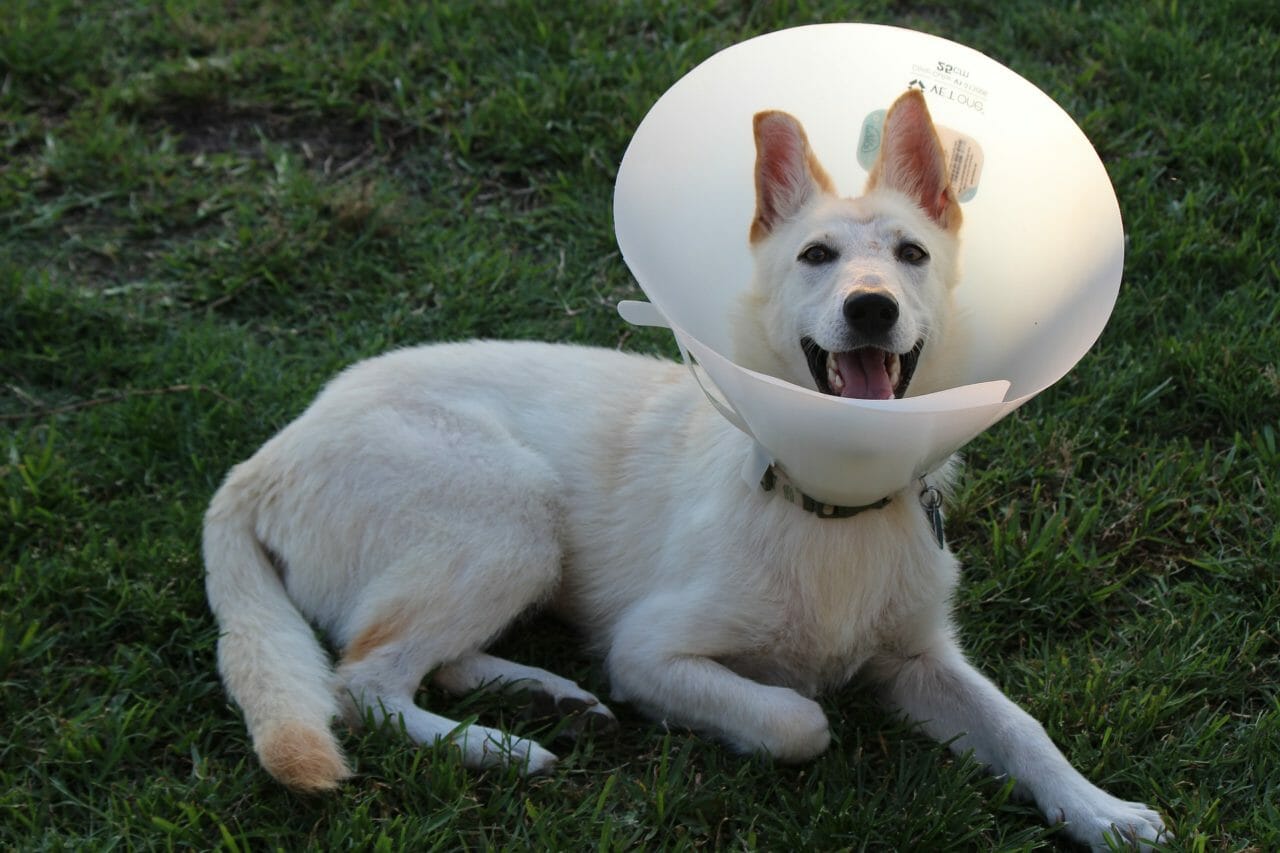Surgery can be a scary time for your pup. Make sure complications don’t follow you home.
Finding out your dog is going to have surgery can be scary. You might be worried about how your pup will handle the anesthesia, the pain, and the recovery process.
While we usually worry about the lead-up to and during surgery, sometimes we don’t think about what happens after. While the vet will usually inform you of any after-effects that may occur, one thing your vet might not mention is bowel incontinence after surgery.
Dog bowel incontinence is when a dog leaks poop or has accidents after surgery. Because bowel incontinence after surgery is a common complication in dogs, it’s essential to be prepared for it.
In this blog post from RehabPet.com, you’ll learn everything you need to know about dog bowel incontinence after surgery, including:
- Why dog bowel incontinence happens
- How to manage and treat it
- When you should see the vet
- And more
Keep reading to learn more about dog bowel incontinence and what you can do to help your furry friend feel better.
What Is Dog Bowel Incontinence?
As we mentioned above, bowel incontinence is when your dog loses control over bowel movements. This problem can come in the form of a little bit of urine leakage, full-on accidents, or anything in between.
It can happen to any dog, but it’s most common in older dogs or dogs who have had surgery. Puppies and young dogs might also experience bowel incontinence because their anal sphincter muscles aren’t fully developed yet.
Other health conditions outside of surgery can also cause bowel incontinence. If your dog has diabetes, for example, they might experience incontinence because of high sugar levels in their urine.
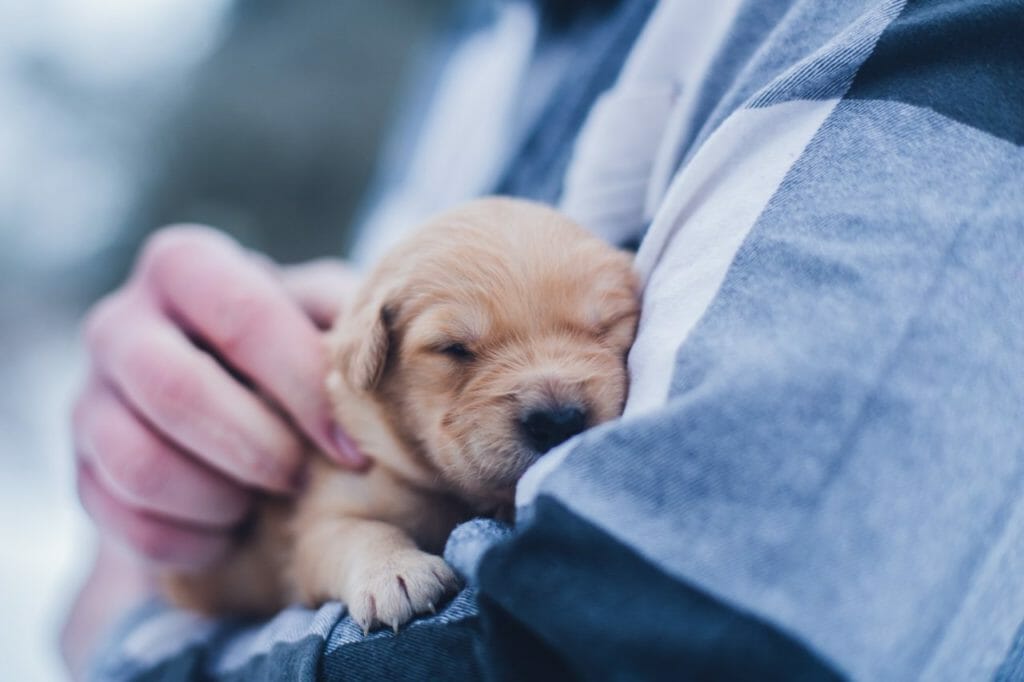
What Causes Bowel Incontinence?
Many different things can cause bowel incontinence. As we mentioned, some health conditions can lead to it. But surgery is one of the most common reasons dogs experience this problem.
Some of the most common surgeries that might cause bowel incontinence are:
- Spay or neuter surgery
- Gastrointestinal surgery
- Prostate surgery
- Hernia repair surgery
Any of these surgeries can cause your dog’s bowel to fall into two different categories:
Reservoir Incontinence
This refers to any disease of the rectum. The rectum is the last part of the large intestine before the anus. It’s a reservoir for stool (stool is also known as poop). Because the rectum can’t retain its normal amount of stool, it results in your dog being forced to poop more frequently.
Most often diseases that directly affect the rectum will cause reservoir incontinence. These diseases can be anything from a simple case of diarrhea to more complicated issues like inflammatory bowel disease or cancer.
Sphincter Incontinence
This is when the anal sphincter muscle is damaged. The anal sphincter muscle is what controls the open and closing for your dog’s bowel movements. When it can’t close properly, it results in accidents leaking out.
Sphincter incontinence is most often caused by surgery. But it can also be caused by other things like a wound or large mass keeping the sphincter open (this is most common if your dog eats something their body can’t digest). Or, the nerves that control the anal sphincter can also be damaged, resulting in incontinence.
Now that we’ve gone over what dog bowel incontinence is and what causes it, let’s talk about how to spot the signs.
Clinical Signs of Dog Bowel Incontinence After Surgery
The most obvious sign of dog bowel incontinence is your dog leaking poop after surgery. If you notice your dog pooping or peeing more frequently, that’s also a sign something might be wrong.
Other signs include:
- Scooting their bottom along the ground
- Straining to defecate or urinate
- Excessive licking of the genital area
- Stool dripping out when your dog barks or gets excited
- Your dog leaking poop while sleeping after surgery
It’s also important that you keep an eye on your dog’s bottom area for redness or inflammation.
If you notice any of these clinical signs, it’s time to take your dog to see the vet.
How To Treat Dog Bowel Incontinence: Treatment Options After Surgery
The first step in treating dog bowel incontinence is to find out what’s causing the problem. So make a trip to your vet.
Your vet will likely do a full physical exam and ask you about your dog’s medical history. They might also recommend some tests like x-rays, ultrasounds, or biopsies.
Once your vet determines what’s causing the incontinence, they can start to treat the underlying problem. If the incontinence is being caused by an infection, for example, they’ll likely prescribe antibiotics.
If the issue is being caused by a wound that isn’t healing, they might recommend surgery to close it up. If your dog has diabetes, they’ll work on getting their sugar levels under control.
There are a few things you can also do at home to help manage this problem:
- Talk to your vet about your dog’s diet. They might recommend a food that’s easy to digest or high fiber diets that help bulk up their stool.
- Increase the amount of exercise your dog gets. This will help them stay healthy and have fewer accidents.
- Make sure your dog has easy access to the outdoors. If they have to hold it in for too long, it can make the problem worse.
- Use diapers or belly bands. These can help catch any accidents and keep your dog (and your house) clean.
- Lots of water. This will help keep your dog’s stool soft and easy to pass.
Incontinence can be a frustrating problem for both you and your dog, but there are things that can be done to help. Work with your vet to come up with the best plan for your dog and stick to it.
Closing Thoughts
We hope this article helped you understand a little more about dog bowel incontinence after surgery. Remember, if you think your dog might be having accidents due to incontinence, the first step is to talk to your vet.
It’s unpleasant when your dog begins having accidents. But it’s important to remember that your pup is not doing it on purpose and that there are tons of effective cleaning products out there to make the clean up easy on you and your house. Be patient and give your dog lots of love until he or she is feeling better.
Wishing you and your pup all the best.
